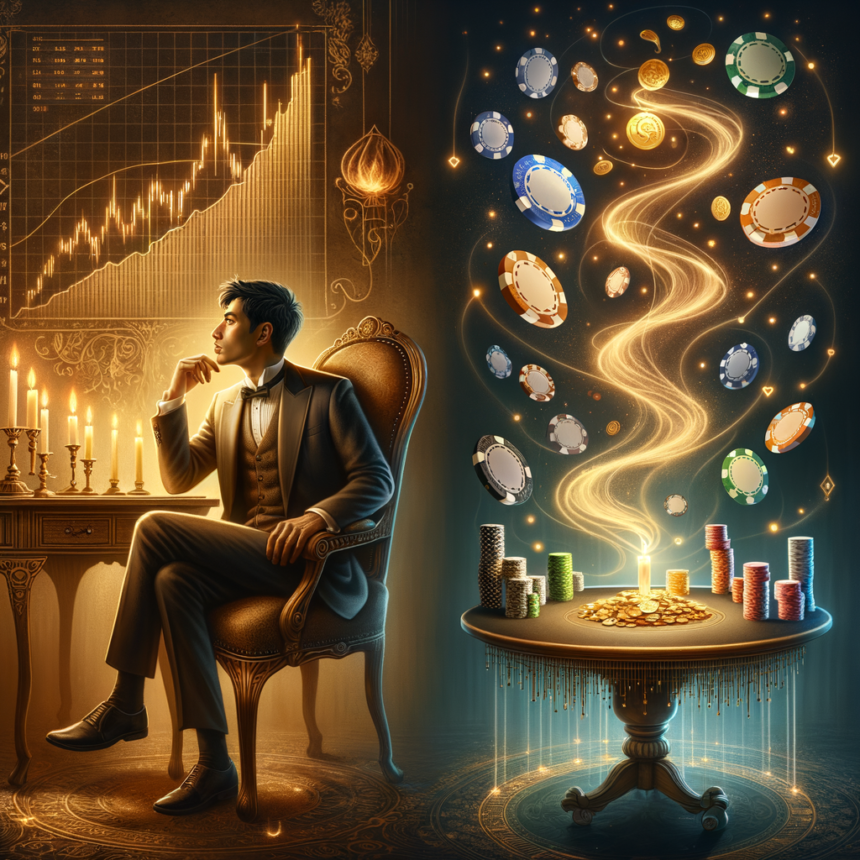At first glance, trading on financial markets and playing poker might seem worlds apart—one tied to the seriousness of economic decisions, the other to entertainment and gambling. However, a closer look reveals that successful traders and skilled poker players often share the same mindset, strategies, and decision-making skills. Both disciplines demand a deep understanding of risk, probability, discipline, and human behavior. Let’s explore the surprising parallels between trading and poker, and why mastering one may improve your performance in the other.
1. Risk Management Is Key
In both trading and poker, managing risk is more important than winning every trade or hand. Traders set stop-loss orders and size their positions based on portfolio risk. Similarly, poker players decide how much to bet or fold based on the strength of their hand and potential outcomes.
Over-leveraging in trading is akin to going all-in on a weak hand. In both cases, poor risk control can lead to disastrous losses. Professionals in both worlds learn to accept small, controlled losses to avoid bigger failures later.
2. Probability and Strategic Thinking
Successful poker players constantly calculate odds—what are the chances their opponent has a better hand, and is the pot worth the risk? Likewise, traders assess the probability of different market outcomes using technical and fundamental analysis.
Neither poker nor trading is about certainty. Both are about making the best decision with the information available. The outcome of any single decision may not be favorable, but consistently making high-probability decisions over time leads to success.
3. Emotional Discipline and Psychology
Emotional control is crucial in both arenas. A trader who lets fear or greed take over might chase losses or exit profitable trades too early. A poker player on “tilt” might make reckless decisions after a bad beat. In both professions, maintaining discipline under pressure is what separates professionals from amateurs.
Emotions cloud judgment. Both poker players and traders train themselves to remain calm and objective, even in high-stakes situations.
4. Understanding the Opponent or the Market
Poker is not just a card game—it’s a game of people. Reading your opponent’s tendencies and adjusting your strategy accordingly is key. Similarly, in trading, understanding market psychology—how other participants are likely to react—can be a powerful edge.
Just as poker players bluff or exploit aggressive opponents, traders anticipate reactions to economic data, technical levels, or global news and position themselves accordingly.
5. Long-Term Perspective
Neither poker nor trading should be treated as get-rich-quick activities. Both are long games where consistent performance and solid strategy matter far more than short-term luck. Even the best poker players lose hands, and even the best traders have losing days. What matters is the ability to stay in the game and keep improving.
6. Data Analysis and Edge Development
Modern poker players use software to analyze hand histories, calculate equity, and identify mistakes. Traders use charts, indicators, and backtesting to refine their strategies. Both rely on data to build a competitive edge and make informed decisions.
Real-Life Applications
Many professional traders play poker to sharpen their decision-making skills. The logic, discipline, and probability-based thinking translate well between the two. For example, platforms like Try Poker in Telegram provide accessible ways to practice strategic poker in a casual setting, reinforcing many of the same cognitive skills required in financial markets.
Conclusion
While poker and trading differ in format and context, they are strikingly similar in practice. Both demand a combination of logic, intuition, discipline, and adaptability. Whether you’re holding a hand at a poker table or placing a trade in the market, success depends on managing risk, understanding probabilities, and making smart decisions under uncertainty.
If you’re a trader looking to strengthen your strategic mindset—or a poker player curious about markets—recognizing these similarities might give you a valuable edge in both fields.
